Curriculum 2018-19
The curriculum of the Master of Science in Control Engineering for the academic year 2018-19 can be downloaded here (only in Italian). The relevant parts of the organization of studies are reported below.
120 credits are needed for the master degree. These are earned as follows
- 2 mandatory core courses, for a total of 24 credits, during the two semesters of the first year
- 6 courses chosen from a group of 10 core courses, totaling 36 credits
- 3 courses chosen from a group of 7 completing courses, totaling 18 credits
- other 12 credits from courses of free choice by the student
- NEW: internship (3 credits) and master thesis (27 credits) during the second year
Students should pass a total of 12 exams. Courses of free choice count altogether as a single exam.
Table 1. Mandatory core courses
| Course (code) | Type | SSD | Credits | Year | Semester |
|---|---|---|---|---|---|
| Nonlinear systems and control (1041424) | B | ING-INF/04 | 12 | 1 | I-II |
| System identification and optimal control (1041425) | B | ING-INF/04 | 12 | 1 | I-II |
Table 2. Choose 36 credits among the following 10 core courses
| Course (code) | Type | SSD | Credits | Year | Semester |
|---|---|---|---|---|---|
| Process automation (1041422) | B | ING-INF/04 | 6 | 1 | I |
| Robotics I (1023235) | B | ING-INF/04 | 6 | 1 | I |
| Robust control (1041453) | B | ING-INF/04 | 6 | 1 | I |
| Multivariable feedback control (1041426) | B | ING-INF/04 | 6 | 1 | II |
| Robotics II (1021883) | B | ING-INF/04 | 6 | 1 | II |
| Control of communication and energy networks (1041429) | B | ING-INF/04 | 6 | 2 | I |
| Control problems in robotics (1055496) | B | ING-INF/04 | 6 | 2 | I* |
| Digital control systems (1041428) | B | ING-INF/04 | 6 | 2 | I |
| Dynamics of electrical machines and drives (1041454) | B | ING-IND/32 | 6 | 2 | I |
| Vehicle system dynamics (1041431) | B | ING-IND/13 | 6 | 2 | II |
* = Control problems in robotics consists of two modules of 3 credits that are chosen among the four modules of the course Elective in robotics (12 credits, ING-INF/04). NEW: These modules can be taken only during the second year of the course of study.
Table 3. Choose 18 credits among the following 7 completing courses
| Course (code) | Type | SSD | Credits | Year | Semester |
|---|---|---|---|---|---|
| Robotics II (1021883) | C | ING-INF/04 | 6 | 1 | II |
| Autonomous and mobile robotics (1022775) | C | ING-INF/04 | 6 | 2 | I |
| Computer and network security (1022792) | C | ING-INF/05 | 6 | 2 | I |
| Control of communication and energy networks (1041429) | C | ING-INF/04 | 6 | 2 | I |
| Digital control systems (1041428) | C | ING-INF/04 | 6 | 2 | I |
| Machine learning (1022858) | C | ING-INF/05 | 6 | 2 | I |
| Control of autonomous multi-agent systems (1041427) | C | ING-INF/04 | 6 | 2 | II |
NEW: The course “Autonomous and mobile robotics” has been moved to semester I of the 2nd year. Therefore, it will not be offered during the academic year 2018/19, coming back in 2019/20.
Table 4. Other activities
| Activity (code) | Type | SSD | Credits | Year | Semester |
|---|---|---|---|---|---|
| Courses of free choice by the student | D | free | 6 | 1 | II |
| Courses of free choice by the student | D | free | 6 | 2 | I |
| Internship (AAF1044) | F | - | 3 | 2 | II |
| Master thesis (AAF1025) | E | - | 27 | 2 | II |
In place of 2 courses with 6 credits of free choice, students may opt for only 1 course with 12 credits. NEW: Starting with the Manifesto of this academic year, 6 credits of free choice in the study plan can be included already at the first year.
Note: All courses require to pass an exam with a sufficient grade (≥18, out of 30) to earn the credits. Internship and Master thesis provide credits without needing an exam.
Type: A (basic courses), B (core activities), C (completing activities), D (student free choice courses), E (master thesis), F (other activities).
SSD (Italian university classification of scientific areas): ING-INF/04 = Systems and control; ING-INF/05 = Computer science; ING-IND/13 = Applied mechanics; ING-IND/32 = Converters, electrical machines, and drives.

